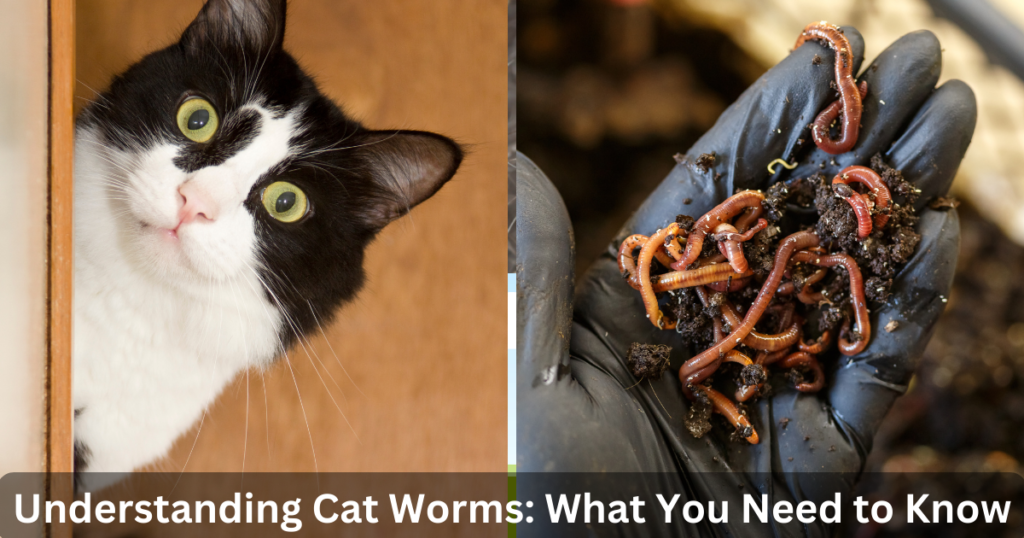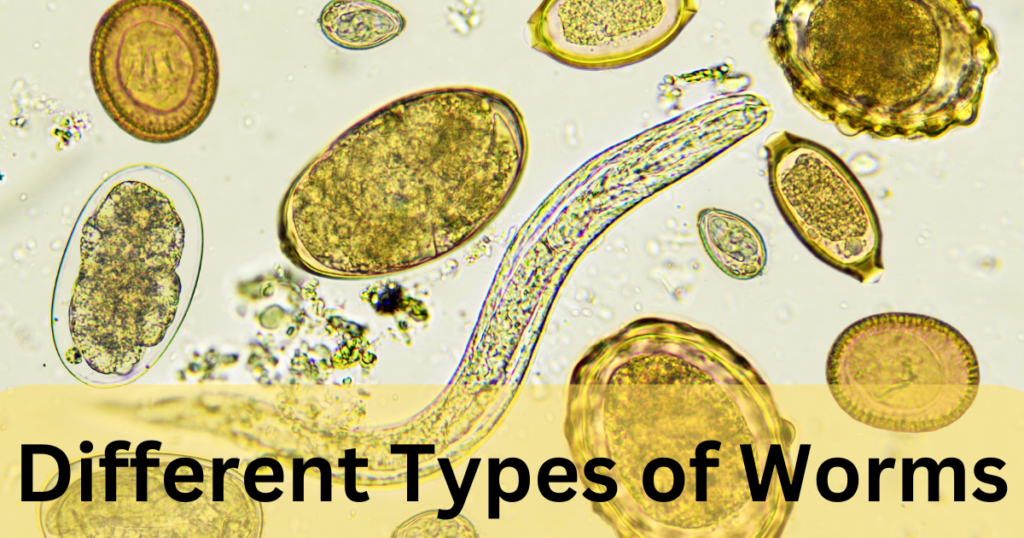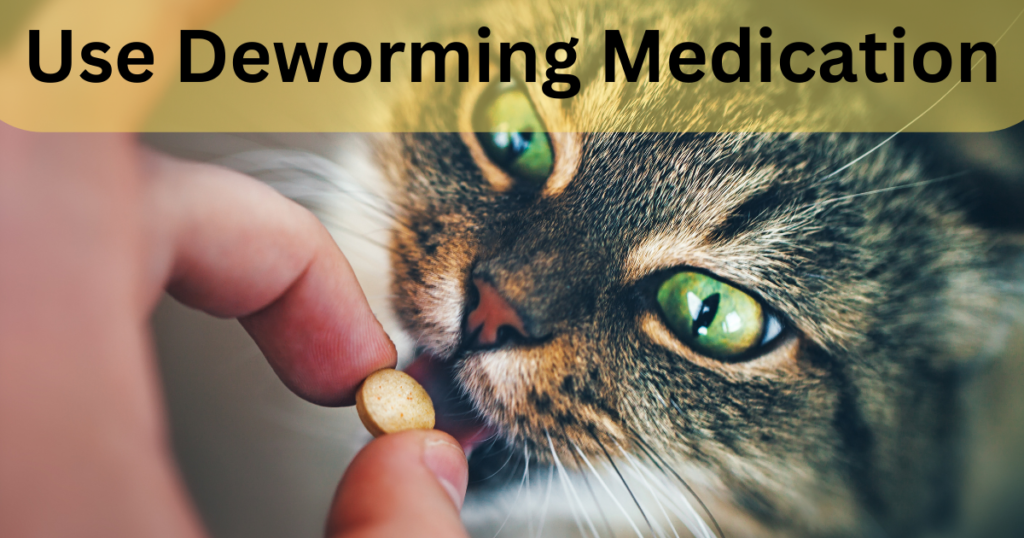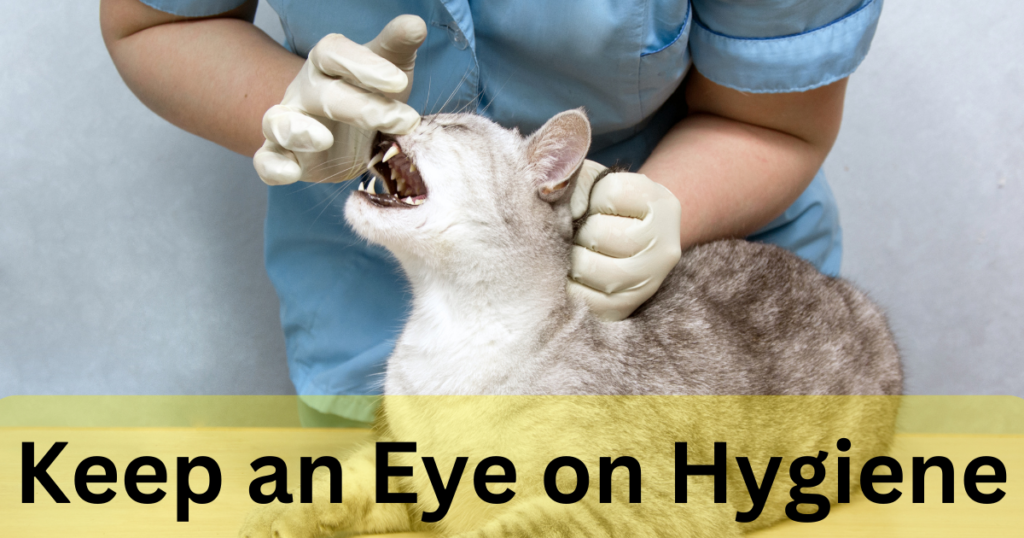

How to Deworm Your Cat? Cats adore nature; as a caring cat owner, you should provide a secure environment, play with your cat, provide a healthy diet, and show your cat lots of love.
Today, we’ll discuss how to deworm your cat, a significant topic. It may sound a little gross, but trust me, it’s essential to keep your feline friend free of those bothersome worms. Don’t worry; I’ll explain everything so you can care for your furry friend. After reading this article, you’ll be an expert at caring for your animal friend!
Understanding Cat Worms: What You Need to Know

First things first – let’s understand what these worms are. Sometimes, cats develop these little worms in their stomachs or other bodily areas. These worms can harm your cat’s health; they are not typical pets like Whiskers or Mittens. To keep your cat feeling its best, getting rid of them is essential.
Different Types of Worms:

Your cat may experience a few different types of worms. The most typical examples are:
- Roundworms can develop inside your cat’s intestines and resemble long, spaghetti-like worms. Adult cats can get them by eating infected animals or excrement, while kittens can get them from their mothers.
- Tapeworms: These flattened tapeworms resemble little grains of rice. They stick to the intestines of your cat and take nourishment. Cats can contract tapeworms by eating tiny rodents or ingesting infected fleas while grooming.
- Hookworms: These worms have mouths that resemble hooks, which they use to latch onto your cat’s intestines and consume its blood. Cats can contract hookworms by eating infected animals or stepping in infected feces.
- Heartworms: This type of worm has a serious potential to harm your cat since it lives in its lungs and heart. Although the occurrence is not as common in cats as in dogs, the worms can still be deadly since mosquitoes spread them.
- Whipworms are not as standard but can still harm your cat’s intestines. Cats who eat sick animals risk contracting whipworms.
Now that we know what we are up against let’s find out how to eliminate these worms.
How to Deworm a Cat:

Visit the Vet:
Taking your cat to the veterinarian is the first step. Even if your cat seems to be in good condition, it’s essential to have frequent checkups with the vet to maintain the health of your furry pet. The veterinarian will inspect your cat and, if necessary, request a small sample of its excrement to check for worm eggs or live worms. Don’t be afraid; it’s not as terrifying as it sounds and helps the doctor determine how to treat your cat best.
Use Deworming Medication:

Your cat’s vet will prescribe the appropriate deworming medicine once they have determined what kind of worms your cat has. This medication comes in various formats, including tablets, liquids, and delectable snacks. So, no need to worry! Your cat might believe they are just receiving an extra special treat if their deworming medication is flavored. Don’t push your cat to take medicine if she doesn’t want to. Ask the veterinarian for suggestions on simplifying things; they may also prescribe a different medication.
Regular Treatment:
How to Deworm Your Cat? Remember that deworiming is a continuous process necessary to protect your cat against worms. Your veterinarian will inform you of the duration of deworming your cat based on its lifestyle and any relevant risk factors. In general, kittens require more frequent deworming than adult cats. Mark the deworming plan on your calendar to ensure you remember to maintain your pet’s health.
Keep an Eye on Hygiene:

In addition to deworming, you can do several easy things at home to help keep worms from harming your cat. It’s a good habit to wash your hands after petting your cat, especially before eating. Although cats are generally clean animals, they occasionally contain worm eggs in their fur, so cleaning your hands can help to keep you and your family safe. Remember, a clean cat lives longer.
Clean and replace the cat’s litter box frequently. Cleaning the litter box often will stop your cat from unintentionally ingesting any worms because worm eggs and larvae can hide in the excrement.
Flea Control:
Keeping your cat clear of fleas is crucial since they occasionally transmit worm eggs. Consult your veterinarian for advice on cat-friendly flea prevention strategies. Your cat can be shielded against fleas and, indirectly, from some worms with specific shampoos, collars, and treatments.
Tips and Tricks for How to Deworm a Cat at Home:

Let’s get started with some helpful advice for deworming your cat at home:
- Watch Your Cat’s Behaviour: Cats with worm infestations can exhibit symptoms including vomiting, diarrhea, a change in appetite, or a swollen abdomen. You should immediately seek guidance from your veterinarian if you see any of these symptoms.
- Regular grooming strengthens your bond with your cat and makes it easier to spot worms. Look for tapeworms in your cat’s fur, which may show little rice-like pieces around its back.
- Use Preventive Care Regularly: A monthly preventive care treatment can significantly help prevent the growth of worms and other parasites. Select the appropriate preventative care for your cat by speaking with your veterinarian.

